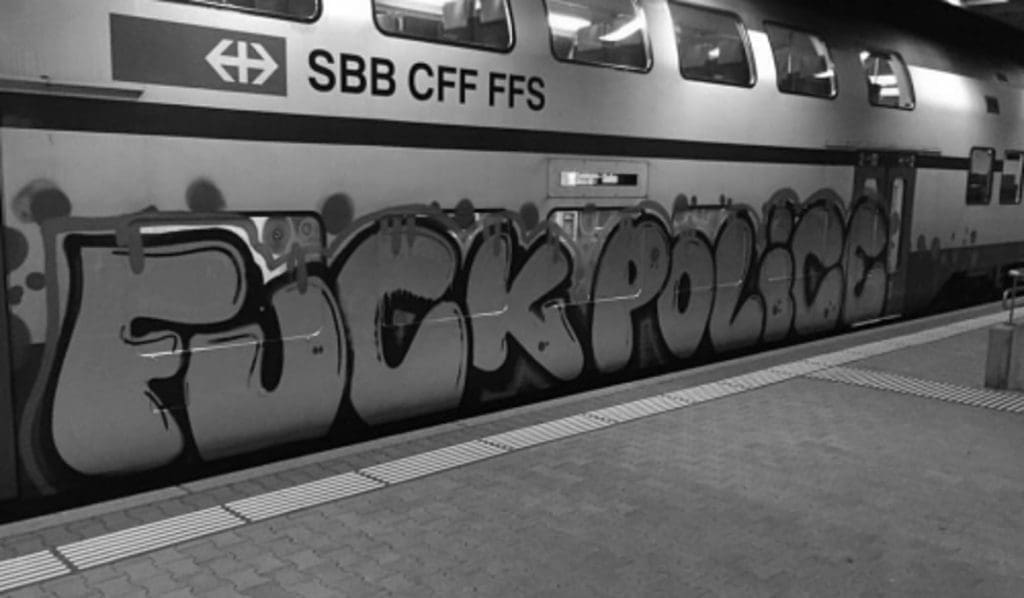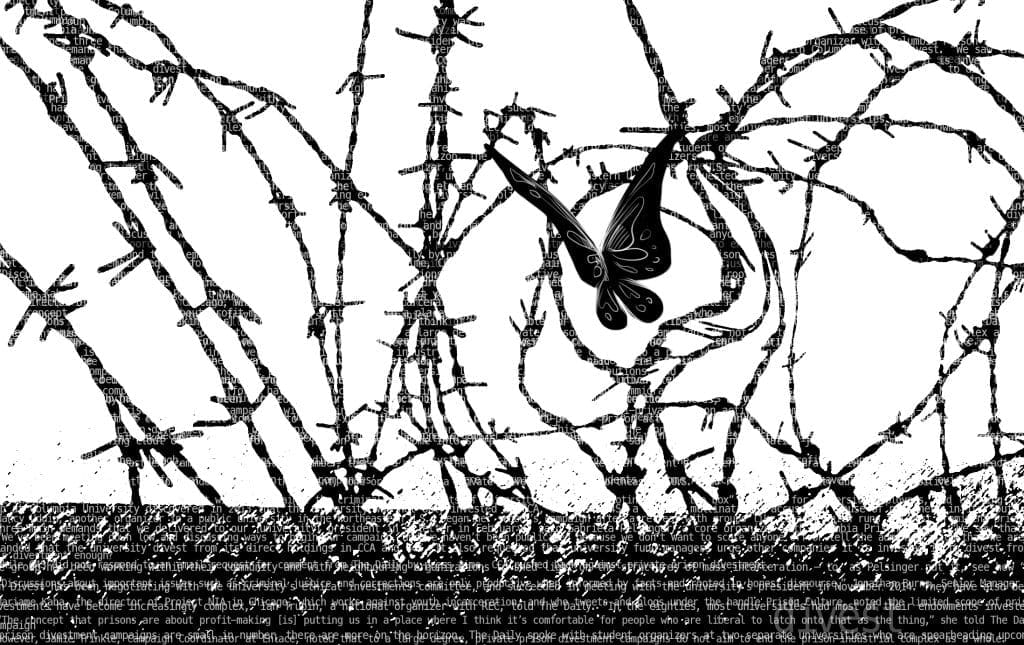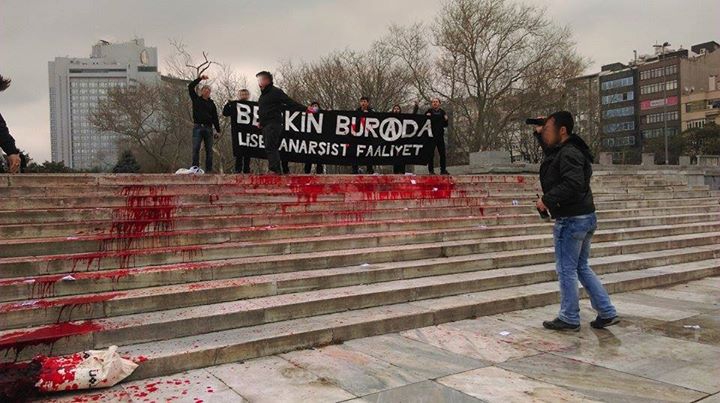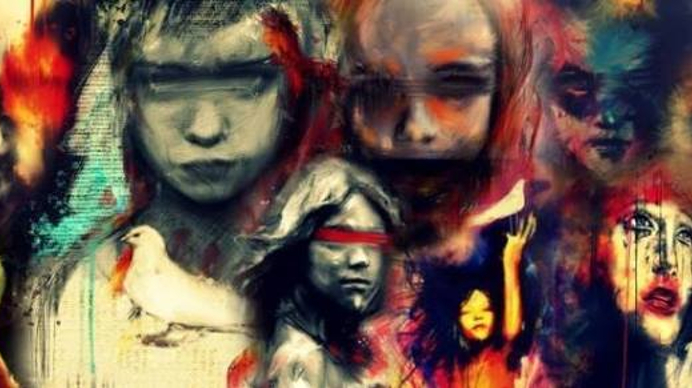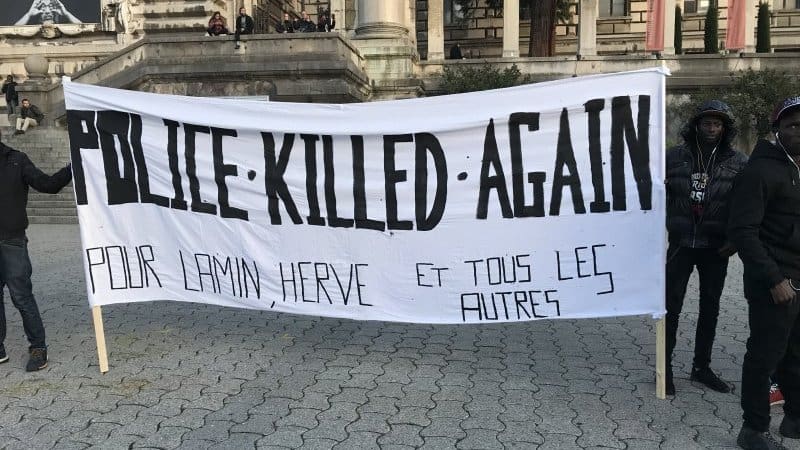Transcribed from the 9 July 2020 episode of This is Hell! Radio (Chicago) and printed with permission. Edited for space and readability. Listen to the whole interview:
Not only are police unions rightwing and reactionary, but at this point in time they are very strongly in the camp of Trump. They are a white reactionary racist political force.
Chuck Mertz: Getting rid of police unions would not end police violence, but it would end an institution that exacerbates, if not encourages, that violence. Returning to This is Hell! to talk police, policing, and their unions, attorney Flint Taylor wrote the Truthout article “Police Unions Are Racist Power Brokers in Opposition to Movement for Black Lives.”
Welcome back to This is Hell!, Flint.
Flint Taylor: Great to be back with you, Chuck.
CM: Really good to hear your voice.
How much more difficult is it to help those who have accusations of police violence during COVID and the large number of infections in Cook County? How much more difficult is it to help those who need your law office’s assistance when it comes to police violence?
FT: It makes it more difficult. Our office is shut down, so we’re working from home. Some of us have been out to demonstrations, and some of the lawyers have been working on various lawsuits arising from the protests. The lawyers guild has a mass defense organization that’s dealing with people who got busted on nights when confrontations with the police happened.
With regard to the jail of course, there have been the deaths of at least seven prisoners—pretrial detainees—at Cook County jail, and three staff members as well. There have been lawsuits brought by various public interest lawyers to attack the conditions at county jail.
There’s a remarkable amount of legal work happening, and of course we know how much support and leadership is going on in the streets. So yes, it’s more difficult, but I think it also has inspired lawyers on the left to step up their game as well.
CM: Your article at Truthout is very critical of police unions—but (I hate to put you in this position) if you were a police officer how would you feel about the unions? Is it a good union for officers?
FT: I’m someone who has dealt firsthand with the “unions” for almost my entire career, which spans from Fred Hampton’s assassination to the present. I wrote the article primarily to expose the history of their racism and the power of that racism—power that it has not only within the structure of the police department but also with the mayor and other public officials.
If I were a police officer? Well, I’d like to pass on that one, Chuck, but I will dive into your hypothetical for a quick moment. The little bit I understand about unions in general is that they represent their people primarily around issues of contracts in terms of wage, salary, working conditions, and that kind of thing. But the powers that be in police unions have gone way beyond that, trying to control and protect officers in all circumstances. Their leadership is primarily, if not exclusively, white. It’s old school.
There’s a former police superintendent up in Minneapolis who became an expert witness for us. His name is Tony Bouza, and he’s a very forward-thinking individual. He characterized the union and the officers as “Trumper-thumpers.” Not only are the unions rightwing and reactionary, but at this point in time they are very strongly in the camp of Trump. They are a white reactionary racist political force. So they don’t represent the rank-and-file police officers. Certainly they wouldn’t represent me if I were an officer. They don’t represent the Black officers. They don’t have Black representation in the power structure. If they did you wouldn’t see them paying for Burge’s defense. You wouldn’t see them paying for Laquan McDonald’s murderer’s defense and supplying lawyers for that. And you wouldn’t see them saying that any officer who took a knee would be drummed out of the lodge.
They represent the most powerful yet reactionary and racist aspect of police departments and police officers.
CM: Do you think that police unions are less popular than we might be led to believe by the media? The way that I consume the media, at least, it seems that police are one hundred percent behind the union and the union is one hundred percent behind every officer. Do you think that popularity is exaggerated?
FT: Much exaggerated. But we have to remember that police departments and police officers are in a paramilitary organization ruled by a culture of the code of silence. Your life and your livelihood is at stake if you break the code of silence. We have examples throughout history. Frank Lafferty, Chicago’s Serpico, who came forward and exposed secret street files to us showing what the police department and the detectives were seeking to bury: evidence that showed innocence in cases. They had kept this buried for decades. Lafferty broke the code of silence to save a young man’s life who was on trial for murder, who was innocent—and the evidence of his innocence was hidden in police street files.
What happened to Lafferty? He didn’t get a medal. He was an honored detective. They busted him down. They sent him to police headquarters, and his job was to watch recruits pee in a cup. That’s how he was dealt with for breaking the code of silence. And the Black officers at Area 2 where Burge and his crew ran rampant with torture—the Black officers, the few who were there, were intimidated into silence. They knew what was going on, even though Burge kept them out of the rooms where the torture was happening. They’d seen the torture devices and all of that. But they were so afraid for their jobs, and actually for their lives and livelihoods and their families, that they waited almost fifteen years, until they retired—I finally got statements from them about what they knew about the torture at Area Two. But they did not speak up until they were outside the grip of the code of silence.
If this leadership is reflective of the Chicago police department, then what Darrell Canon (one of the torture survivors and a dear friend and client of mine) has repeatedly said is true: the police department is just the Klan with badges.
There were some very brave officers, African-American officers over the years and decades, with the African-American Police League, who spoke out and took a position on the assassination of Fred Hampton, and took a position of the torture at Area Two—but that group was under extreme pressure. Renault Robinson, one of their leaders, got similar treatment to Lafferty after they brought a lawsuit to integrate the police department thru affirmative action. He ended up patrolling an alley behind Eleventh and State, which was the headquarters at the time. There’s a tremendous amount of pressure on police officers to go along and get along, and that certainly means that you go along and get along with the union.
There’s a Black officer who in the last couple of weeks spoke out against the union—he talked about taking a knee, and he talked about Black Lives Matter. He was interviewed by the Tribune and he’s been on TV recently. He wrote a letter resigning from the union, and that is a remarkably courageous act by him. Of course now he’s in conflict about all of this with the clown at the head of the union. But it raises the issue that particularly African-American officers, and many of the rank-and-file who would perhaps like to police in a more humane way, are under a tremendous amount of pressure to go along with the union and the decisions that the union leadership makes.
CM: You write, “Recently-elected Fraternal Order of Police president John Catanzara, like Kroll, the Minneapolis police union chief, has a long record of disciplinary offenses and is presently serving a suspension for writing a false report.”
Was that false report just a small error? Or was there something bigger? Why would you elect somebody to be your union president who’s filed a false report? Isn’t that just bad publicity?
FT: From what I understand, the false report was that he wrote up Eddie Johnson, who was the superintendent at that time—and he didn’t write Eddie up for falling asleep behind the wheel, which got him fired, ultimately, by mayor Lightfoot. He wrote him up for marching with Father Pfleger in a march against violence.
You track the history—believe it or not, Chuck: over fifty years, each one of the presidents of the FOP in Chicago has been more rightwing than the last one. I thought I’d seen it all when Martin Preib, a close buddy of Jon Burge, ran for FOP president. We got some emails between Burge and him, and he was scheming to write a book for Burge before he died. In the emails, Burge was calling me and my clients, the torture survivors, “vermin” and “snakes.” Preib was a tremendously rightwing, racist vice president who became the union spokesperson. He then ran for president and was beaten out to the right by the guy who’s in there now.
If this leadership is reflective of the Chicago police department, then what Darrell Canon (one of the torture survivors and a dear friend and client of mine) has repeatedly said is true: the police department is just the Klan with badges.
CM: One of the things that gets me, Flint, is it seems like all of a sudden there has been this national epiphany that there is systemic or institutional racism and racialized violence within the police force. A lot of people are saying this is only coming to light now because of body cams. But you and your organization have been telling the media about this for fifty years.
You write, “In 1994, the independent Mollen commission found that corruption within the New York police department ‘is characterized by brutality, theft, abuse of authority, and active police criminality.’ Senior NYPD officials and prosecutors agreed with the commission’s conclusion that the PBA [their union] protected corrupt police officers by helping them evade accountability.”
How long has everyone been fully informed that unions protect corrupt cops who engage in brutality, theft, abuse of authority, and active police criminality? Why is there this sense that people “just found out” about police violence, when so many people, even the unions, even the NYPD, have known for twenty-eight years at the very least that police violence is rampant?
FT: I guess it’s better late than never that people are learning—the ones who don’t already know and aren’t involved are learning now in this remarkable moment, when movements are in the streets every day leading the way.
But if we go back and ask how long this has been known: to anyone who was really watching this and had an open mind, it’s been known as long as there was an FOP. The FOP here in Chicago started in 1963, and by 1969 they were taking the position that the police were heroes for murdering Fred Hampton in his bed. If we look at New York—the equivalent of the FOP in New York is called the PBA, the Police Benevolent Association if you can dig that. The first thing that I ran into was in 1966 when they raised hell about mayor John Lindsay talking about a civilian review board, and they used their power to lobby against it and get it defeated in a referendum. Then they upped their game in the seventies and eighties, when they shut down the Brooklyn Bridge and had several mass demonstrations that turned to violence. Under mayor [Abraham] Beame they ran through Black and Latinx communities waving their weapons, banging on trashcans, and kicking things over, basically a police riot.
When we get to 1994 and the Mollen commission, that was building on twenty-five years of police violence and union insanity and racism in New York. When the Mollen commission came out, the mayor was Black—mayor [David] Dinkins. At one of the demonstrations the PBA held, they had ten thousand off-duty cops, and Dinkins was one of their targets because (again) he was trying to impose a civilian review board. The racism and the depictions of the mayor with big lips, the racist signs and pictures that these cops were carrying, totally exposed the PBA for its wanton racism, as well as the reactionary nature of their fight against the civilian review boards and accountability for the police department in New York.
CM: You’ve been doing this work since the assassination of Fred Hampton by the Chicago police department, which happened on December 4, 1969. A year earlier, in 1968, the Chicago police department showed how violent it could be during the police riots in Grant Park, while the Democratic National Convention was taking place here in town.
Are police any more or less abusive or violent today than when you started your work?
Not only is the equipment militarized, but the people and the attitudes are too. Burge had an attitude of dehumanization that came straight from his view of the Vietnamese, and it didn’t take him long to apply that to the African-American suspects he was bringing in from the south side of Chicago.
FT: Some of the repression that they impose has a different quantitative nature. Probably if you go back and look at how many African-American and people of color were killed by the police fifty years ago and how many are killed today, you’d see that there are fewer now. But the brutality itself—the wrongful convictions, the sentencing, the mass incarceration—has increased.
The police still serve the same function that they served fifty years ago, and that is as an oppressive force, a policing force, even a military force as it were, in the communities which the government (both city and federal) want to control. They want to control rather than give meaningful employment, rather than give the kinds of benefits and rights that we all are entitled to. They police instead, they repress instead, and they incarcerate instead.
CM: Police are clearly more militarized than they were when you began your career. Is that militarization having any impact? Is there evidence that militarization either leads to more police abuse, or lessens the chance of the police being abusive because of their show of overwhelming force?
FT: You give them the toys and they’ll play with them. Give a grenade launcher to a county with twelve hundred residents, and they’ll figure out a way to use it. The more militarized they are, the more violent they are in the sense of control. We saw that at Standing Rock, and we’ve seen it in the streets in the last month or two. If you have a computer or a TV you see the militarization of the police. This militarization isn’t just about the weapons that they’re given. It’s about who gets enlisted as cops. We see an exchange between the most violent aspects of the military and the most violent aspects of the police department, going all the way back to Burge.
Where did Burge get his training in electric-shocking people? In Vietnam; he was in a POW camp where they were torturing Vietnamese civilians and guerillas. Some of the people who were torturing in Abu Ghraib were connected to the correctional system here in this country. And we see that people coming back from Iraq and Afghanistan become prison guards and cops.
So not only is the equipment militarized, but the people and the attitudes are too. Burge had an attitude of dehumanization that came straight from his view of the Vietnamese, and it didn’t take him long to apply that to the African-American suspects that he was bringing in from the south side of Chicago.
The dehumanization and the training that they have in the military goes along with the equipment that comes from the military, to make the police even more deadly—in terms of what they’re capable of doing and what they will do in certain circumstances—than they were fifty-sixty years ago.
CM: You write, “When a department, pursuant to a consent decree or community pressure, implements de-escalation and peer intervention training, the union provides alternative ‘warrior mentality’ trainings free of charge.”
You were saying that the union didn’t start up until 1963. Are the police, in the way that they view policing right now, at war with the public? And prior to 1963, was the police at war with the public? Do we have a romantic vision of police that’s based on pre-union police who weren’t as violent or aggressive as they are today?
FT: No, that would not jive with history. We have to understand where the police came from. The police came from slave patrols. The slave patrols certainly were as violent as anything we can imagine today. That is what they were about: racist violence against enslaved people who had been able to escape. Of course that wasn’t all that they dealt with. They generally committed repression and genocidal violence against enslaved people. Then we see where the police in cities arose: as a force to suppress the labor movement. We have Haymarket here in Chicago as an example of what police were about in this city before they turned their attention, in the early 1900s during the first great migration, to the Black communities. And we see what happened here in 1919: white riots facilitated by white cops.
They’ve always been violent because their assignment and their role has always been to repress those who are in conflict with property and the ruling classes of society. The police department has become more modernized and in some ways more violent in terms of what they’re capable of doing weaponry-wise, but their assignment, their role can be traced from the inception of policing.
CM: You write, “In 2009 the Chicago FOP held a reunion at which it attempted to rewrite history about the wanton police brutality of the 1968 Democratic National Convention. In a false narrative that mirrors current police statements about today’s protesters, the FOP declared that ‘the time has come that the Chicago Police be honored and recognized for their contributions to maintaining law and order and for taking a stand against anarchy. The only thing that stood between Marxist street thugs and public order was a thin blue line of dedicated, tough Chicago police officers.’”
How much are cops policing Marxism? How commie-obsessed are they? Are they still fighting the Cold War? And do you see that in their actions?
FT: The labels might change. We can substitute “antifa” for “commie Marxists” or whatever that quote referred to in terms of the “outside agitators,” the Abbie Hoffmans of the world who came to Chicago to demonstrate and agitate in 1968. They point the same finger now, and Trump is jumping all over that as a desperate attempt to revitalize his chances in the election, characterizing the entire Movement for Black Lives and all of the multiracial support that it has in the streets as violent leftwing radical agitators.
The police become tools in whatever schemes and programs the powers that be, the big real estate developers, and the capitalists in general have: taking over communities and turning a profit out of those communities.
Hitler did the same thing. You have to give at least some of your supporters the ideological basis for the hate and violence that you’re spewing. That’s what they’re doing now. It’s a divide and conquer tactic as well: to make people who go out in the streets leery of doing so because they’re afraid something is going to happen that will be characterized as violence, even though 99.9% of any violence that happens is violence against property. It’s not violence against a 75-year-old peace activist or a 26-year-old woman in Louisville, or you name it. That’s violence. Burning down a Target is not on the same level, of course, as shooting someone dead, sticking a knee on someone’s neck, or firing rubber bullets at someone so that a president can go across the street to hold a bible upside-down.
That’s what we’re dealing with here in terms of the propaganda that unions put forward. Of course, Kroll up in Minneapolis is an ardent Trump supporter who came out and spoke with Trump at a rally. And the guy here in Chicago is a big Trump supporter and has spoken out for Trump on his website, on his Facebook page, and Trump gave him a big thumbs up when he got elected. Their ideology is a shared ideology with the authoritarian or neofascist attitudes that are coming from Washington.
CM: You mentioned Breonna Taylor. The Louisville Courier-Journal reported on Monday that “Breonna Taylor’s shooting was the result of a Louisville police department operation to clear out a block in western Louisville that was part of a major gentrification makeover, according to attorneys representing the 26-year-old’s family. Lawyers for Taylor’s family allege in court documents filed in Jefferson circuit court Sunday that a police squad named ‘Place-Based Investigations’ had deliberately misled narcotics detectives to target a home on Elliott Avenue, leading them to believe they were after some of the city’s largest violent crime and drug rings. The complaint, which amends an earlier lawsuit filed by Taylor’s mother against the three Louisville officers who fired their weapons into Taylor’s home, claims Taylor was caught up in a case that was less about a ‘drug house’ on Elliott Avenue and more about speeding up the city’s multi-million-dollar Vision Russell development plan.”
How often, when you have been involved in cases of police violence or police abuse, do you find that abuse linked to concerns like the economy, development, or gentrification of a neighborhood?
FT: That’s a very interesting theory that’s being put forward there. It really gives you great food for thought about these raids that end up in the wrong house and someone gets beaten or shot, or their house gets turned upside-down and then they go, “Whoops! It was two doors down!” It’ll be a family with five little kids who got terrorized within an inch of their lives by SWAT teams looking for drugs that weren’t there, because it was another apartment building, or another unit in the building.
That you can chalk up to gross negligence, deliberate indifference. This takes it to another level: they don’t really care which house they go to, they’re just jacked up to bust into houses. This gives a political theory behind why they were going there, not just because they made a “mistake,” because the guy who they thought was a drug dealer wasn’t really there, but because they were consciously at a unit targeted for gentrification. It’s a billion-dollar operation to gentrify a west Louisville neighborhood that abuts downtown, to “clean it up.”
They’re putting a gloss on it, saying they’ll have low-income housing and the kinds of things that a poor community needs. But in reality this is nothing different from the gentrification that’s going on now in our city, in places like Ukrainian Village, for example. Is it any different than the “urban renewal,” as they called it back in the sixties when I was starting out, that they were doing down Halsted around Webster, and that the Young Lords were fighting against?
The police become tools in whatever schemes and programs the powers that be, the big real estate developers, and the capitalists in general have: taking over communities and turning a profit out of those communities.
CM: Is support for police support for white supremacy? And is that the political divide in the United States? Support of the police or not; support for white supremacy or not? Is that the political divide that is being revealed to us today?
FT: It certainly is a pre-eminent divide here. White supremacy, in all its forms, is so powerful in this country and such a part and parcel of its history, back to the genocide against Indigenous people. That history is hidden from us. We all like to think that we understand white supremacy from our work and our studies over the years, but even our eyes are being opened to how ingrained in our history and symbols white supremacy is, as statue after statue gets toppled. My personal favorite was when Christopher Columbus was dumped into the harbor in Baltimore: straight out, boom, into the water.
Of course the police are the frontlines in enforcing white supremacy. Now we’re seeing that in a way that people in general can see, and have to deal with it. They are being asked to deal with what has been the hidden secret of US history as it applies not only to the past, but to the present.
CM: Flint, always great to hear your voice.
FT: Thanks, Chuck, it’s always great talking with you.

